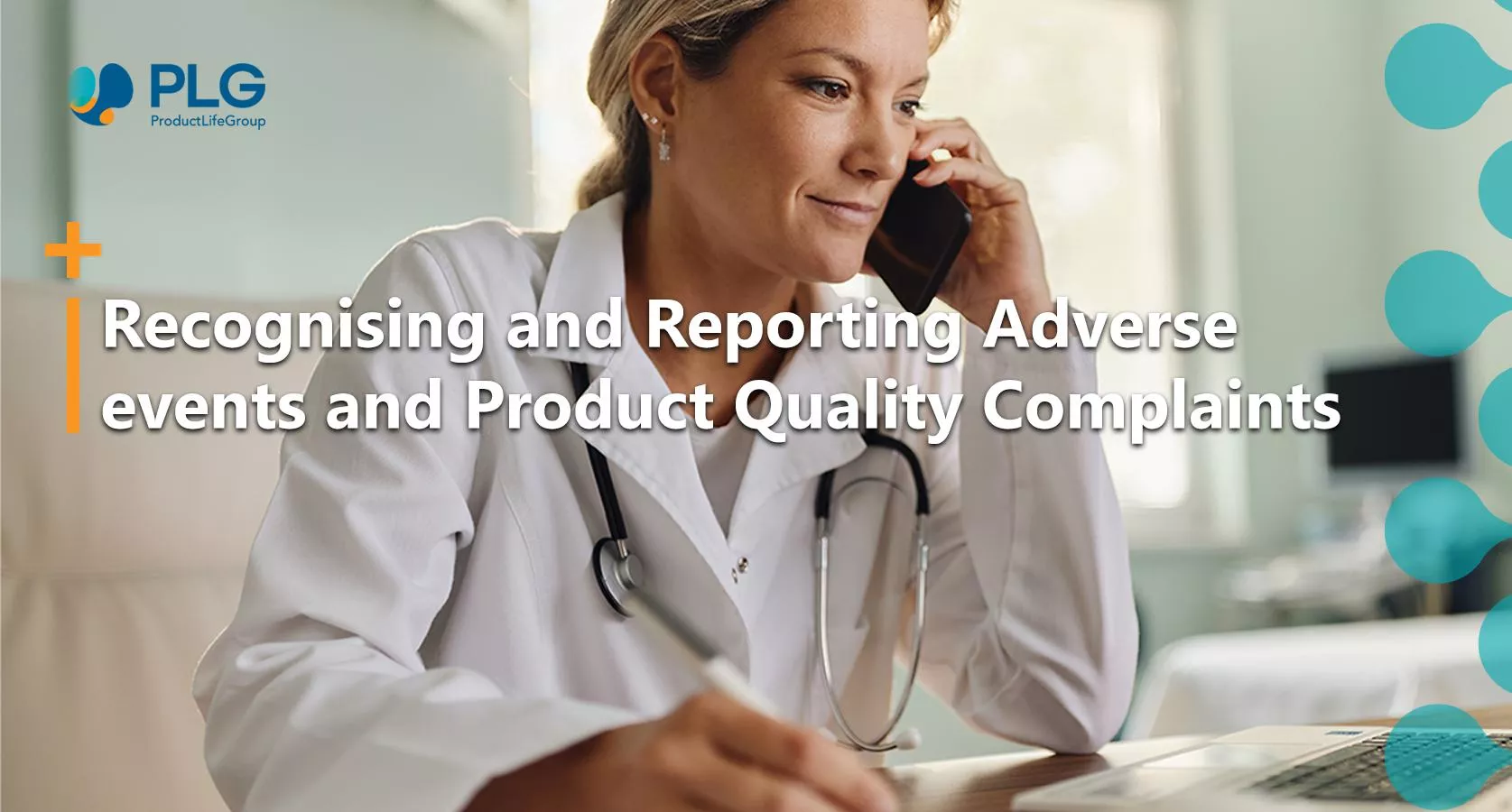
Recognising & Reporting Adverse Events & Product Quality Complaints
03 august 2023

In today’s interconnected world, where consumer safety and product quality are paramount, individuals and healthcare professionals must be aware of adverse events and product quality complaints. Recognising and reporting these issues can help ensure individuals’ well-being and facilitate product safety improvements, whether a medication, medical device, or consumer product. This article aims to highlight the significance of recognising adverse events and product quality complaints and the importance of promptly reporting them.
Adverse Events and Product Quality Issues
As per ICH E2A guidelines, adverse events refer to any undesirable or unintended signs, symptoms, or medical conditions after exposure to a medication or medical device. They can range from mild discomfort to severe complications and significantly impact an individual’s health and quality of life. Recognising and reporting adverse events is essential to safeguard the affected individuals and the broader population.
How to Recognise an Adverse Event
Recognising an adverse event involves being vigilant and observant of any changes in physical or mental health after using a particular medicinal product. Paying attention to symptoms such as allergic reactions, unexpected side effects, worsening of existing conditions, or any unexplained illness is important. Healthcare professionals play a crucial role in recognising and assessing adverse events, as they possess the necessary medical knowledge to differentiate between expected and unexpected reactions. However, individuals (consumers) should also be proactive in monitoring their health and reporting any concerns to their healthcare providers.
Product Quality Complaints and How to Spot Them
Similarly, product quality complaints about product safety issues, effectiveness or overall quality should also be escalated to the manufacturer. This can include product defects, contamination, improper labelling, or packaging errors. Recognising these complaints is vital not only for consumer safety but also for regulatory compliance and quality control by manufacturers. Common indicators of product quality issues include unusual appearance, strange odours, unexpected taste, or any deviations from the product’s intended appearance, use or performance.
Once an adverse event or product quality complaint is recognised, reporting it promptly to appropriate health authorities or organisations is crucial. Various channels are available for reporting adverse events, including healthcare providers, pharmacists, manufacturers, regulatory agencies, or dedicated reporting systems (e.g. Yellow card system). Timely reporting of adverse events enables a swift investigation into the issue, identification of potential patterns or trends, and implementation of necessary corrective measures. It also contributes to accumulating valuable data for pharmacovigilance, product surveillance, and continuous improvement of safety standards.
Benefits of Recognising and Reporting Adverse Events and Product Quality Complaints:
Recognising and reporting adverse events and product quality complaints yield several benefits, including:
- Patient Safety: Potential patient risks can be identified and mitigated by promptly reporting adverse events and product quality complaints. Prompt reporting reduces the chances of missing any important detail related to the incident/adverse event, which is a major benefit in further evaluating the incidence. Timely intervention can prevent further harm and contribute to improved patient outcomes.
- Public Health Surveillance: Gathering and analysing data from reported events help regulatory authorities identify patterns, trends, and potential safety signals. This information assists in making informed decisions, implementing regulatory measures, and protecting public health.
- Continuous Improvement: Reporting adverse events and product quality complaints fosters a culture of continuous improvement. Manufacturers can use the reported data to enhance their products, manufacturing processes, and quality control measures, ensuring safer and more effective healthcare products.
- Enhanced Communication and Transparency: Effective reporting systems promote open communication between healthcare professionals, patients, caregivers, and manufacturers. This transparency fosters trust and collaboration among stakeholders, leading to a safer healthcare ecosystem.
Recognising and reporting adverse events and product quality complaints are integral in maintaining patient safety and the integrity of the healthcare system. Through active vigilance and collaboration between healthcare professionals, patients, caregivers, and manufacturers, potential risks can be identified, assessed, and mitigated effectively. By participating in the adverse event reporting process, each stakeholder plays a vital role in safeguarding public health and contributing to the continuous improvement of pharmaceutical products.
How PLG can Support you in Managing your Adverse Events and Product Quality Complaints
PLG offers case management activity as part of the Pharmacovigilance process. PLG has experts across Europe, the UK, India and Tunisia who perform case management activity related to clinical trials or post-marketing. Case management activity includes receipt via downloading regulatory cases from health authorities, literature monitoring and medical inquiry / spontaneous, data entry into the safety database, and submitting cases to various health authorities on time. The case management team has experts with profound knowledge of regulatory guidelines. PLG has successfully handled clients of EUROPE, the UK, the USA, SWISS, etc., for their case management activity.
Register to our news and events
Go to our Events to register
Go to our News to get insights
